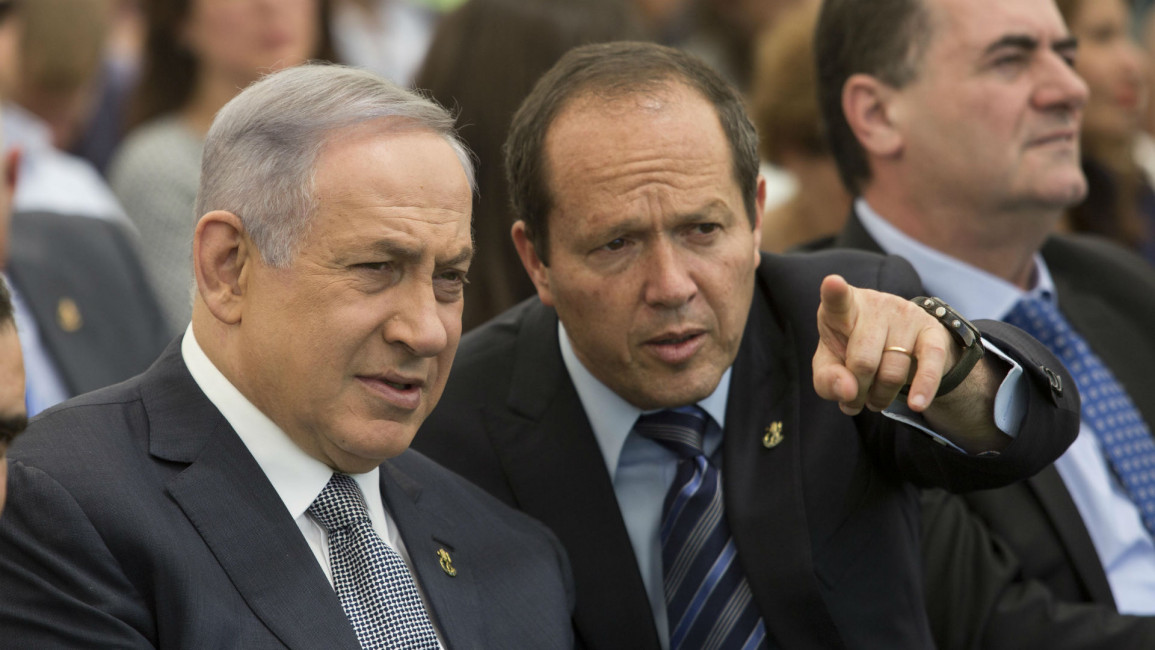Jerusalem's Israeli mayor: No such thing as Palestinian refugee
Jerusalem's outgoing mayor is calling on the international community to consider his proposal to end the local operations of the UN agency for Palestinian refugees, even going to the extent to claim that there is "no such thing" as a refugee in the city.
In an interview, Nir Barkat, who is leaving office after elections later this month, said Sunday he was inspired to make his proposal after the US cut off $300 million in funding to the agency last month.
The proposal by Barkat marks the latest assault by Israel and the United States against the United Nations Relief and Works Agency (UNRWA), which Palestinians believe is a move driven by Israel and the US trying to erase the refugee issue from the international agenda.
Barkat outrageously accused the UN-funded schools of using textbooks that promote anti-Israel incitement, and said Israel will “revolutionise” the Palestinian education system; a something which Palestinians believe is a ploy to “brainwash” youth and further the “Israelisation” of the occupied lands.
"I look at all of my residents as residents. There's no such thing as residents that live in the city of Jerusalem that are defined as refugees," he claimed in an interview with The Associated Press. "We will treat them like any other residents in the city and provide the best services we can."
Barkat's plan faces significant obstacles. For starters, he does not appear to have the legal authority to shut down an international agency that was created by the UN General Assembly decades ago and continues to have wide international backing. He said the Israeli government is studying the proposal.
In addition, taking on the responsibility of providing services to Jerusalem's more than 12,000 Palestinians who rely on UNRWA will be an additional burden for the cash-strapped municipality.
The city's roughly 340,000 Palestinians live overwhelmingly in impoverished neighborhoods of east Jerusalem that already suffer from poor services, overcrowded schools and inadequate infrastructure, largely as a result of Israel’s five-decade long illegal occupation of East Jerusalem.
The Shuafat refugee camp, where most of the city's refugees live, lies on the outskirts of the city behind Israel's West Bank separation barrier.
Barkat, however, encouraged the UN and others to consider his proposal with "an open mind."
He claimed that during his term he has made great strides toward improving education and other services in Palestinian areas. He said the UNRWA crisis is another "opportunity" to serve Palestinians.
UNRWA already has expressed concerns about Barkat's proposal. It said the agency operates under an international mandate and formal agreement with Israel and remains "determined" to continue carrying out its services.
UNRWA was founded following the war surrounding Israel's independence to assist some 700,000 Palestinians who fled or were forced from their homes in the fighting. Today, it serves more than 5 million Palestinians across the Middle East, serving as a cherished safety net.
Israel, however, accuses the agency of perpetuating the conflict by helping promote what it considers an unrealistic Palestinian demand that refugees who are still yet to recover from the Nakba which led to the creation of Israel, have the "right of return" to long-lost homes after generations of displacement. Prime Minister Binyamin Netanyahu has said UNRWA should be abolished.
Palestine, meanwhile, sees a more sinister agenda.
Palestinian officials cut off ties with the US after President Donald Trump recognised contested Jerusalem as Israel's capital. They accuse him of undercutting their internationally backed claim to East Jerusalem, captured by Israel in 1967, as their capital.
Now, they see Israel and the US conspiring to remove the refugee issue from the agenda as well ahead of an expected US peace proposal.
"We will keep UNRWA until the refugee issue is solved. The entire world, except for Israel and the U.S., is on our side," said Adnan Hussein, the Palestinian minister for Jerusalem affairs. "It is an issue to be solved by negotiations and not unilateral decisions by Trump, Netanyahu and Barkat."
Barkat, however, shockingly accused the Palestinians and UNRWA of forcing refugees to suffer in poor conditions while turning them into "a negotiating chip in a future potential deal."



